Zimbabwe
Zimbabwe’s cashless economy has left businesses in the country’s capital, Harare stranded with little or no money coming in as the country gears up for election next Monday July 30.
Entrepreneurs like Justine Mulauzi, 42, are hoping the cash crisis will be one of the first issues to be tackled by the elected government.
Inside his electronic shop, Mulauzi said the flow of customers has significantly gone down and he has been struggling to sell products for months.
The few customers he gets, normally buy small electronic devices which they pay for using a mobile electronic system called EcoCash.
‘‘We have got a number of methods of transacting, like transfers; we are doing transfers to our suppliers, to our suppliers we buy using transfers. And also when we are selling the goods to customers, the customers are using swipe and also they are using ecocash because we are facing a challenge of having hard cash on the market. So that’s when we are going to be affected by… on daily basis sometimes we change prices due to the fact that we also need to suit the economy… each and every time. So it will be difficult for us to maintain our prices, that means we are supposed to change prices time and again. So it will affect now, our sales”, Mulauzi said.
While many countries have become familiar with mobile money transfers, Zimbabwe was forced to adapt to EcoCash due to the severe shortage of hard currency and banks running dry.
For daily transactions, locals simply load a number or code to which they need to transfer the money to and the recipient gets a notification to confirm payment. EcoCash is the reason many Zimbabweans can still pay their bills and buy groceries.
“I think the need of cash is still there because some local vendors, if you want to buy tomatoes, bananas, they are not accepting EcoCash. So at the end of the day there is need for cash then at the same time there is need to adapt to using the EcoCash”, Harare resident Ramahleba said.
For another resident, Spencer Chigome there’s no cause for alarm.
“If you want to pay anything, even bills or you want to buy anything from a shop, you can use EcoCash. So I think it’s good because we don’t have cash right now”, Chigome said.
Due to a raging hyperinflation, Zimbabwe abandoned its own currency in 2009 in favor of the U.S. dollar, but a widening trade deficit and lack of foreign investment led to the current cash shortage.
For ordinary Zimbabweans this means winter nights sleeping outside banks in the hope of withdrawing the few dollars that are left, sometimes $15 in coins, often nothing.
The crunch wasn’t solved by the introduction of the “bond notes” which officially trade at parity with the U.S. dollar but have already depreciated to 1.60 to the dollar.
Reuters




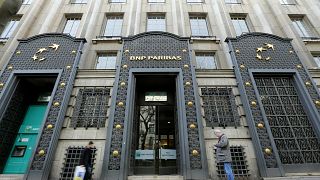
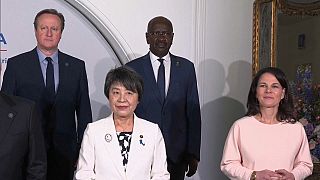
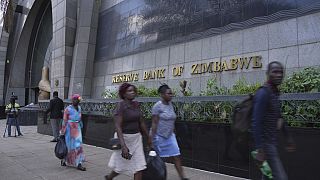

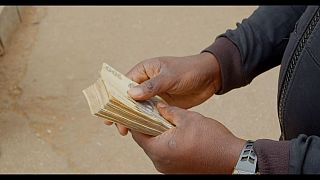
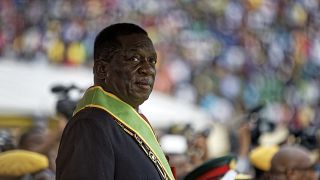
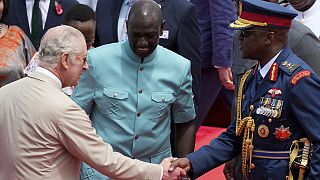
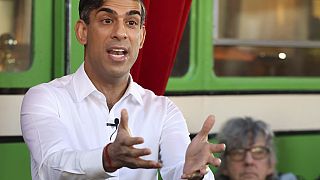

00:52
Tanzanian president in Turkey for 5-day state visit
01:14
Poll shows Egypt's March inflation figures expected to edge upwards
11:11
Senegal: Diomaye Faye's economic challenges [Business Africa]
02:05
Over 2 billion people lack access to safe drinking water- UN report
01:30
Zimbabwean prophet charged in court over child labor